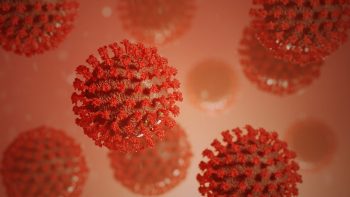 Are you, like many people, shocked by the emergence of a deadly pandemic? Do you wonder what might have been done to prevent the terrible toll that this disease is taking?
Are you, like many people, shocked by the emergence of a deadly pandemic? Do you wonder what might have been done to prevent the terrible toll that this disease is taking?
COVID-19, presumed to have originated in Asian markets, is the most recent viral illness to be connected to the close confinement and inhumane treatment of animals. Other such illnesses include the 1918 H1N1 influenza pandemic, determined to be of avian origin, which killed an estimated 50 million people worldwide.
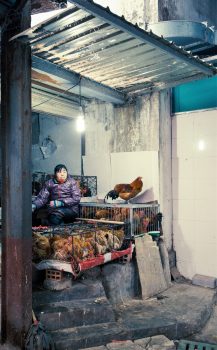 Severe Acute Respiratory Syndrome, first identified in 2002, is believed to have originated from bats—a food source in some countries. The 2009 H1N1 variant that resulted in swine flu is estimated to have killed half a million people worldwide.
Severe Acute Respiratory Syndrome, first identified in 2002, is believed to have originated from bats—a food source in some countries. The 2009 H1N1 variant that resulted in swine flu is estimated to have killed half a million people worldwide.
What Are Zoonotic Diseases?
Illnesses that are transferred from nonhuman animals to humans are known as zoonotic diseases. Sometimes transmission can result from eating or handling infected animals, but there are other means of transfer. Rabies, for example, is the result of being bitten by an animal which has that disease, and the “Black Death” was the result of people being bitten by contaminated fleas.
We have known for decades that animals who are raised or kept in tightly confined areas can be the source of disease. It is also clear that the routine feeding of antibiotics to livestock, with the objective of preventing infections caused by confining the animals in cramped and unsanitary conditions, can create new strains of diseases that are antibiotic resistant. In this regard, avoiding the consumption of animal products, and thereby lowering demand for them, can potentially reduce the incidence of some diseases.
Why Are Infectious Diseases Becoming More Common?
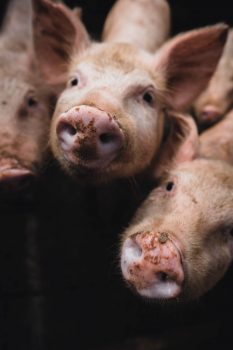 As noted by Dr. Michael Greger in a 2013 presentation, humans domesticated animals 10,000 years ago, but the incidence of disease transfer from animals to humans has dramatically increased in the past few decades. The reason, he says, is that we have changed the way that animals live. Our current methods of animal agriculture, most notably Concentrated Animal Feeding Operations, are stressful for the animals and have become breeding grounds for disease—resulting in pathogens that are both more contagious and more deadly.
As noted by Dr. Michael Greger in a 2013 presentation, humans domesticated animals 10,000 years ago, but the incidence of disease transfer from animals to humans has dramatically increased in the past few decades. The reason, he says, is that we have changed the way that animals live. Our current methods of animal agriculture, most notably Concentrated Animal Feeding Operations, are stressful for the animals and have become breeding grounds for disease—resulting in pathogens that are both more contagious and more deadly.
So what have people done with this knowledge of disease origins? In a 2007 editorial in the Journal of the American Public Health Association, David Benatar, PhD, noted that “although some zoonoses are probably unavoidable, much human suffering resulting from zoonotic diseases could probably have been avoided had humans treated animals better.” He further stated, “It is curious, therefore, that changing the way humans treat animals—most basically, ceasing to eat them or, at the very least, radically limiting the quantity of them that are eaten—is largely off the radar as a significant preventive measure. Such a change, if sufficiently adopted or imposed, could still reduce the chances of the much-feared influenza epidemic. It would be even more likely to prevent unknown future diseases that, in the absence of this change, may result from farming animals intensively and from killing them for food…Those who consume animals not only harm those animals and endanger themselves, but they also threaten the well-being of other humans who currently or will later inhabit the planet… It is time for humans to remove their heads from the sand and recognize the risk to themselves that can arise from their maltreatment of other species.”
Let’s Spread the Word
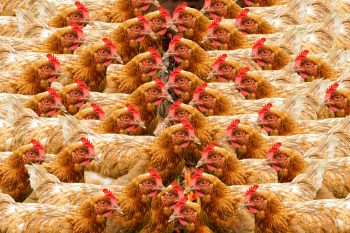 Just as more people are now realizing that changing what we eat can help address climate change, perhaps the current pandemic will result in a realization that we can lower the risk of infectious diseases the same way. Let’s spread the word. Please click the links in this article, learn more about how pandemics originate, and share this information.
Just as more people are now realizing that changing what we eat can help address climate change, perhaps the current pandemic will result in a realization that we can lower the risk of infectious diseases the same way. Let’s spread the word. Please click the links in this article, learn more about how pandemics originate, and share this information.
One problem is that many people are associating the current pandemic with “wet markets” in Asian countries, which makes it easy to consider the disease a product of another culture in a distant place. We need to point out that overcrowding of other livestock, including chickens housed in crowded sheds, can have the same disastrous effect.
Take Care of Yourself

In these challenging days when the coronavirus is spreading around the world, be sure to take care of yourself by getting enough rest and eating a healthy diet. As noted by many health experts, a whole-food, plant-based diet can boost your immune system, which might help you fight off COVID-19.

Leigh Scott is a vegan chef and food blogger at www.olivethethymekitchen. Following a 25-year career as an environmental educator, she earned her culinary certificate in 2016 from the School of Natural Cookery in Colorado. Leigh has recently completed Rouxbe’s Forks Over Knives course, and she specializes in whole-food, plant-based cooking. She also serves on the boards of the Veg Society of DC and Unitarian Universalist Animal Ministry. Leigh earned her VLCE certification at Main Street Vegan Academy in 2019.

Roland Halpern is executive director for Colorado Voters for Animals, a nonprofit organization that advocates for animal welfare through the legislative process. He is also the project coordinator for Unitarian Universalist Animal Ministry, a nonprofit organization that seeks to raise awareness of our duty as humans to care for all creation and to treat animals with compassion and respect. Mr. Halpern holds a master’s degree in nonprofit management, is an ordained animal chaplain through the Emerson Theological Institute, and is Human-Animal Bond Certified by HABRI, the Human Animal Bond Research Institute. Mr. Halpern regularly conducts presentations to graduate students and the public on how individuals can become effective animal advocates.

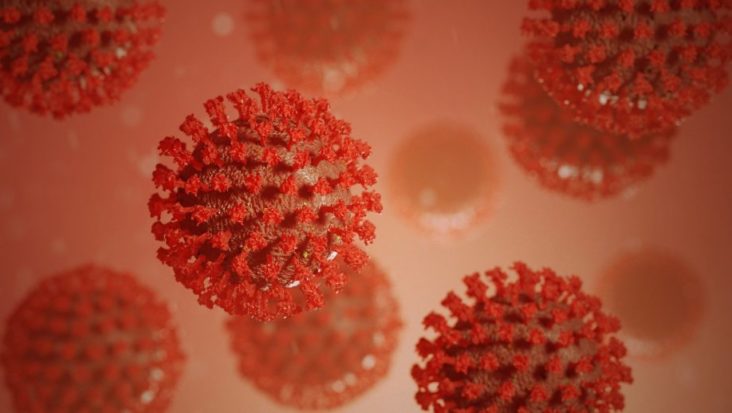
What an important post! Thanks, Leigh and Roland.
It is important to note that wet markets exist in other places besides China.. there are approximately 80 wet markets in New york and these must be closed down as well.. Many people do not realize that wet markets exist in the United States but they do. We must take this seriously and get the word out. please post on your platform to people about the necessity of closing down all wet markets and of course closing down the slaughterhouses as well.
Great article, explaining the connections between animal agriculture and pandemic infections. Thank you, Leigh and Roland!